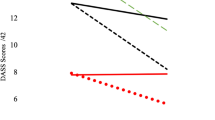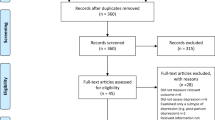Abstract
The hypothesis that allelic variation in the multidrug resistance-1 (MDR1 or ABCB1) gene encoding the P-glycoprotein (P-gp) blood–brain barrier efflux pump is associated with remission and side effects was tested in chronic major depression patients treated with P-gp substrates. In 83 patients from the REVAMP trial, frequency of and time to remission as well as side effects was tested among genotype groups at 6 ABCB1 single nucleotide polymorphisms (SNPs). These six SNPs are significantly associated with remission and time to remission, with minor allele carriers on rs2235040 and rs9282564 attaining statistical significance after controlling for the other ABCB1 SNPs. The six ABCB1 SNPs are also significantly associated with the average side effects. However, here common homozygotes on rs2235040 and rs9282564 demonstrated significantly higher side effects after controlling for the effects of the other ABCB1 SNPs. These findings confirm and extend previous observations that minor alleles of two ABCB1 SNPs predict remission to treatment with substrates and demonstrate that common homozygotes on these SNPs experience greater side effects. Results point to the potential importance of ABCB1 variation for personalized medicine approaches to treating depression.
This is a preview of subscription content, access via your institution
Access options
Subscribe to this journal
Receive 6 print issues and online access
$259.00 per year
only $43.17 per issue
Buy this article
- Purchase on Springer Link
- Instant access to full article PDF
Prices may be subject to local taxes which are calculated during checkout


Similar content being viewed by others
References
Kessler RC, Berglund P, Demler O, Jin R, Koretz D, Merikangas KR et al. The epidemiology of major depressive disorder: results from the National Comorbidity Survey Replication(NCS-R). JAMA 2003; 289: 3095–3105.
World Health Organization. The World Health Report 2001 – Mental Health: New Understanding, New Hope; Geneva, Switzerland, 2001. World Health Organization.
Trivedi MH, Rush AJ, Wisniewski SR, Nierenberg AA, Warden D, Ritz L et al. STAR*D Study Team: Evaluation of outcomes with citalopram for depression using measurement-based care in STAR*D: implications for clinical practice. Am J Psychiatry 2006; 163: 28–40.
Murphy GM Jr, Hollander SB, Rodrigues HE, Kremer C, Schatzberg AF . Effects of the serotonin transporter gene promoter polymorphism on mirtazapine and paroxetine efficacy and adverse events in geriatric major depression. Arch Gen Psychiatry 2004; 61: 1163–1169.
Murphy GM, Kremer C, Rodrigues HE, Schatzberg AF . Pharmacogenetics of antidepressant medication intolerance. Am J Psychiatry 2003; 160: 1830–1835.
Uhr H, Tontsch A, Namendorf C, Ripke S, Lucae S, Ising M . Polymorphisms in the drug transporter gene ABCB1 predict antidepressant treatment response in depression. Neuron 2008; 57: 203–209.
Cordon-Cardo C, O'Brien JP, Casals D, Rittman-Grauer L, Biedler JL, Melamed MR et al. Multidrug-resistance gene (P-glycoprotein) is expressed by endothelial cells at blood-brain barrier sites. Proc Natl Acad Science USA 1989; 86: 695–698.
Hoffmeyer S, Burk O, von Richter O, Arnold HP, Brockmöller J, Johne A et al. Functional polymorphisms of the human multidrug-resistance gene: multiple sequence variations and correlation of one allele with P-glycoprotein expression and activity in vivo. Proc Natl Acad Science USA 2000; 28: 3473–3478.
de Klerk OL, Nolte IM, Bet PM, Bosker FJ, Snieder H, den Boer JA et al. ABCB1 gene variants influence tolerance to selective serotonin reuptake inhibitors in a large sample of Dutch cases with major depressive disorder. Pharmacogenomics J 2012; 13: 349–353.
Laika B, Leucht S, Steimer W . ABCB1 (P-glycoprotein/MDR1) gene G2677T/a sequence variation (polymorphism): lack of association with side effects and therapeutic response in depressed inpatients treated with amitriptyline. Clin Chem 2006; 52: 893–895.
Kato M, Fukuda T, Serretti A, Wakeno M, Okugawa G, Ikenaga Y et al. ABCB1 (MDR1) gene polymorphisms are associated with the clinical response to paroxetine in patients with major depressive disorder. Prog Neuropsychopharmacol Biol Psychiatry 2008; 32: 398–404.
Gex-Fabry M, Eap CB, Oneda B, Gervasoni N, Aubry JM, Bondolfi G et al. CYP2D6 and ABCB1 genetic variability: influence on paroxetine plasma level and therapeutic response. Ther Drug Monit 2008; 30: 474–482.
Lin KM, Chiu YF, Tsai IJ, Chen CH, Shen WW, Liu SC et al. ABCB1 gene polymorphisms are associated with the severity of major depressive disorder and its response to escitalopram treatment. Pharmacogenet Genomics 2011; 21: 163–170.
Noordam R, Aarts N, Hofman A, van Schaik RH, Stricker BH, Visser LE . Association between genetic variation in the ABCB1 gene and switching, discontinuation, and dosage of antidepressant therapy: results from the Rotterdam Study. J Clin Psychopharmacol. 2013; 33: 546–550.
Singh AB, Bousman CA, Ng CH, Byron K, Berk M . ABCB1 polymorphism predicts escitalopram dose needed for remission in major depression. Transl Psychiatry 2012; 2: e198.
Peters EJ, Slager SL, Kraft JB, Jenkins GD, Reinalda MS, McGrath PJ et al. Pharmacokinetic genes do not influence response or tolerance to citalopram in the STAR*D sample. PLoS ONE 2008; 3: e1872.
Sarginson J, Lazzeroni LC, Ryan HS, Ershoff BD, Schatzberg AF, Murphy GM . ABCB1 (MDR1) polymorphisms and antidepressant response in geriatric depression. Pharmacogenet Genomics 2010; 20: 467–475.
Zourková A, Slanař O, Jarkovský J, Palčíková I, Pindurová E, Cvanová M . MDR1 in paroxetine-induced sexual dysfunction. J Sex Marital Ther 2013; 39: 71–78.
Perlis RH, Fijal B, Dharia S, Heinloth AN, Houston JP . Failure to replicate genetic associations with antidepressant treatment response in duloxetine-treated patients. Biol Psychiatry 2010; 67: 1110–1113.
Roberts RL, Joyce PR, Mulder RT, Begg EJ, Kennedy MA . A common P-glycoprotein polymorphism is associated with nortriptyline-induced postural hypotension in patients treated for major depression. Pharmacogenomics J 2002; 2: 191–196.
Mihaljevic PA, Bozina N, Sagud M, Rojnic KM, Lovric M . MDR1 gene polymorphism: therapeutic response to paroxetine among patients with major depression. Prog Neuropsychopharmacol Biol Psychiatry 2008; 32: 1439–1444.
Nikisch G, Eap CB, Baumann P . Citalopram enantiomers in plasma and cerebrospinal fluid of ABCB1 genotyped depressive patients and clinical response: A pilot study. Pharmacological Res 2008; 58: 344–347.
Dong C, Wong ML, Licinio J . Sequence variations of ABCB1, SLC6A2, SLC6A3, SLC6A4, CREB1, CRHR1 and NTRK2: association with major depression and antidepressant response in Mexican-Americans. Mol Psychiatry 2009; 14: 1105–1118.
Menu P, Gressier F, Verstuyft C, Hardy P, Becquemont L, Corruble E . Antidepressants and ABCB1 gene C3435T functional polymorphism: a naturalistic study. Neuropsychobiology 2010; 62: 193–197.
Kikuchi R, deMorais SM, Kalvass JC . In vitro P-pg efflux ration can predict the in vivo brain penetration regardless of BDDCS class. Drug Metab Pharmacokinet Bioanal 2013; 41: 2012–2017.
Breitenstein B, Scheuer S, Pfister H, Uhr M, Lucae S, Holsboer F et al. The clinical application of ABCB1 genotyping in antidepressant treatment: a pilot study. CNS Spectr 2013; 23: 1–11.
Trivedi MH, Kocsis JH, Thase ME, Morris DW, Wisniewski SR, Leon AC et al. REVAMP-Research Evaluating the Value of Augmenting Medication with Psychotherapy: rationale and design. Psychopharmacol Bull 2008; 41: 5–33.
Kocsis JH, Gelenberg AJ, Rothbaum BO, Klein DN, Trivedi MH, Manber R et al. REVAMP Investigators: Cognitive behavioral analysis system of psychotherapy and brief supportive psychotherapy for augmentation of antidepressant nonresponse in chronic depression: the REVAMP Trial. Arch Gen Psychiatry 2009; 66: 1178–1188.
Hamilton M . Development of a rating scale for primary depressive illness. Br J Soc Clin Psychol 1967; 6: 278–296.
Wisniewski S, Rush AJ, Balasubramani GK . Self-rated global measure of the frequency, intensity and burden of medication side effects. J Psychiatr Pract 2006; 12: 71–79.
Rush AJ, Fava M, Wisniewski SR, Lavori PW, Trivedi MH, Sackeim HA et al. STAR*D Investigators Group: Sequenced Treatment Alternatives to Relieve Depression (STAR*D): rationale and design. Control Clin Trials 2004; 25: 119–142.
Rush AJ, Kraemer HC, Sackeim HA, Fava M, Trivedi MH, Frank E et al. RosenbaumJF, Ray O and Schatzberg AF: Report by the ACNP Task Force on Response and Remission in Major Depressive Disorder. Neuropsychopharmacology 2006; 31: 1841–1853.
Kapoor A, Iqbal M, Petrpoulos S, Ho HL, Gibb W, Matthews SG . Effects of sertraline and fluoxetine on P-Glycoprotein at barrier sites: In vivo and in vitro approaches. PLoS ONE 2013; 8: e56525.
Sherry ST, Ward MH, Kholodov M, Baker J, Phan L, Smigielski EM et al. dbSNP: The NCBI database of genetic variation. Nucleic Acids Res 2001; 29: 308–311.
Rosenhagen MC, Uhr M . Single nucleotide polymorphism in the drug transporter gene ABCB1 in treatment-resistant depression: clinical practice. J Clin Psychopharmacol. 2010; 30: 209–211.
Author information
Authors and Affiliations
Corresponding author
Ethics declarations
Competing interests
Dr Murphy has served as a consultant to Brain Resource.
PowerPoint slides
Rights and permissions
About this article
Cite this article
Ray, A., Tennakoon, L., Keller, J. et al. ABCB1 (MDR1) predicts remission on P-gp substrates in chronic depression. Pharmacogenomics J 15, 332–339 (2015). https://doi.org/10.1038/tpj.2014.72
Received:
Revised:
Accepted:
Published:
Issue Date:
DOI: https://doi.org/10.1038/tpj.2014.72
This article is cited by
-
Blood-based biomarkers predicting response to antidepressants
Journal of Neural Transmission (2019)
-
SurvivalGWAS_SV: software for the analysis of genome-wide association studies of imputed genotypes with “time-to-event” outcomes
BMC Bioinformatics (2017)
-
Pharmacogenetics and Imaging–Pharmacogenetics of Antidepressant Response: Towards Translational Strategies
CNS Drugs (2016)
-
MDR1 polymorphisms have an impact on the prognosis of Chinese diffuse large B cell lymphoma patients
Tumor Biology (2016)



